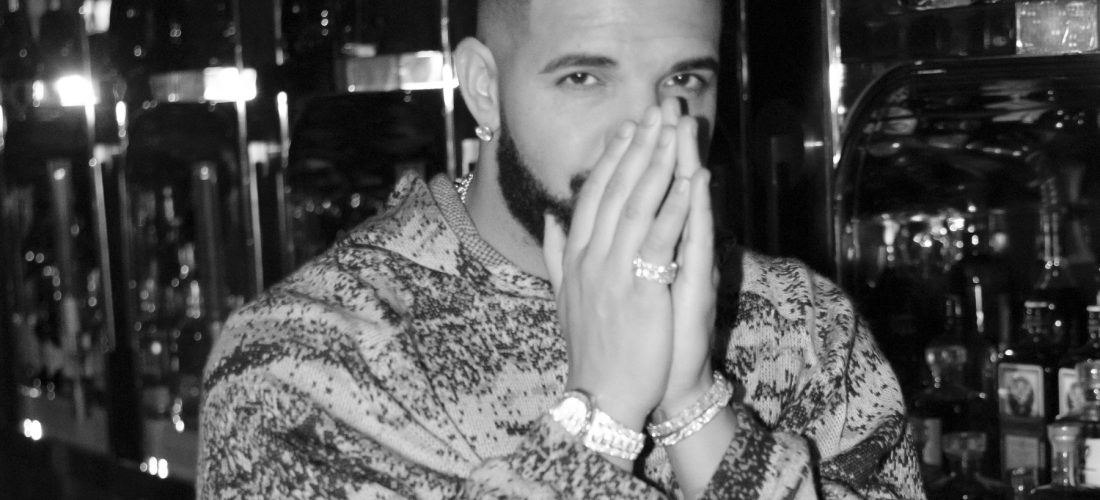With ‘Honestly, Nevermind’ Drake Makes It OK to Dance
Drake announced and released his seventh studio album, Honestly, Nevermind, within the span of a few hours. As the latest addition to the trinity of projects from rap juggernauts in 2022 — following Kendrick Lamar’s Mr. Morale & the Big Steppers and Kanye West’s Donda 2 — it might be the first genuinely surprising move from a scion of the genre since Yeezus. Executive-produced by South African house mainstay Black Coffee, the album achieves something mischievously unguarded: a collection of blissful dance tunes constructed for embrace and abandon. Drake takes a leap further into uncharted realms than any of his peers, offering a refreshing sign of what’s to come.
Officially listed as a dance album, Honestly, Nevermind brings the melodic flourishes Drake introduced to hip-hop into club music’s steely atmospherics. The dance floor has already proved to be a compelling landscape for the emotional gradients Drake likes to paint with. 2017’s More Life, one of the Grammy-winning rapper’s more beloved albums, features a sample of the elusive Detroit dance-music innovator Moodymann. On songs like “Texts Go Green,” where he earnestly coos, “Dodging girls on the scene and girls from my dreams,” under a slinky two-step, his perpetual pettiness finds sturdier footing. The song’s premise, musing on a past lover realizing that he’s changed his number, is precisely the type of emotional storyline you might find yourself working through on a dance floor, obscured from the rest of the crowd by clouds of smoke.
“Calling My Name,” opens with Drake in familiar R&B territory, except his voice has the warbled electronics of early Daft Punk before it cuts into a sample of Ghanian musician Obrafour, ushering in a hefty house rhythm replete with a buoyant and irresistible bass groove. The latter half’s refrain (“Your pussy is calling my name”) is at once peak Drake and peak Nineties house, when lyrical content was known to take on an almost comical thirst.
Claims of Drake being a culture vulture have become less salient with time. Going as far back the early moments of his career —when he released a remix to SBTRKT’s single “Wildfire,” in 2011, or when he flipped a then-unknown Jai Paul sample on “Dreams Money Can Buy” a year later — he’s shown the kind of genuine passion for music discovery that once defined the culture. His latest turn is less a product of calculated maneuvering as it is a product of someone actually paying attention.
Around 2015, the same year YouTube overhauled its recommendation algorithm with the use of artificial intelligence, producers with cheeky names like Mall Grab and Ross From Friends amassed millions of views with euphoric, albeit rudimentary, house jams drowned in a hazy and deep reverb. Dubbed “Lo-Fi House” within some music circles, it has quietly populated various streaming platforms with endlessly pleasant tunes and an adjacent aesthetic fit for the current zeitgeist of nostalgia straddling fascinations with Eighties, Nineties, and Y2K styles all at once.
Drake’s album finds its stride in a run of lo-fi-sounding tracks, beginning with the undeniable hit “Sticky.” Produced by Maryland electronic artist–turned–rap hitmaker Gordo, the song makes the case for a tectonic reorganizing of rap’s place in the current landscape. Here, Drake offers a bridge between the rigid ethos of the mosh pit and the open fluidity of the club. The drums on “Sticky” knock as hard as any, but with an emphasis on euphorics over rage.
“Sticky” offers an opportunity for mutual exchange, a fitting embrace for Drake’s breezy, chest-thumping vignettes. His penchant for packing treacly witticisms into barbed-wire boasts has never felt as dynamic as on the track. The more buoyant atmosphere lets his cadence gallop over the subterranean, Baltimore club-inspired beat, infusing his humble brags with poetic playfulness. “If we together, you know it’s a brief one,” he raps, before delivering a patented Drake-ism, letting the punchline fall off a cliff, into the next bar. “Back in the ocean you go, it’s a — it’s a deep one.”
“Massive,” the album’s bona fide rave weapon is pure and well-executed big-room house — the kind of white-label R&B remix that could never be released on a major label due to sample clearances (such as this Four Tet remix of Ne-Yo, for example). The result is a radio-ready hit that, coming from an artist like Drake, has the power to reconfigure taste. It’s no wonder that this album was announced shortly after Beyoncé hinted at her own long-awaited project, which appears to similarly embrace the thrust of dance music’s power as a form of Black musical expression. Her new single, “Break My Soul,” could easily fit on a DJ mix alongside “Massive.”
Honestly, Nevermind is also a dedication to the late designer and creative Virgil Abloh, as Drake notes in its official description on streaming platforms, and Drake’s approach to the project surely feels inspired by the Louis Vuitton icon. There’s a playful abandonment of pretense as Drake goes all-in on the concept, his vocal delivery almost viscerally unvarnished. Subtle creaks at high notes and half-whispered croons feel like hearing a hushed voice memo sent via text, yet don’t entirely fall flat, either — like in the latter half of “Falling Back,” where Drake taps into a position untethered from ego, once forbidden territory for artists working at his scale.
It’s an iteration of the vulnerable and authentic ethos the current generation demands of its internet-born superstars. Even when Drake brings us back down to familiar territory on the album’s closing tracks, “Liability” and the 21 Savage-assisted “Jimmy Cooks,” something feels changed. Like a weight’s been lifted from the whole genre.
